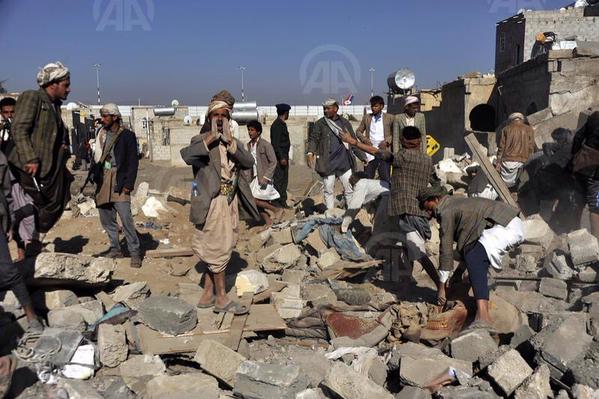
Saudi Arabian forces, joined by nine other countries, have launched a military operation in Yemen against Shiite Houthi rebels, the Saudi ambassador to the US said. The offensive, which started with airstrikes, will also involve “other military assets.”
According to Ambassador Adel bin Ahmed Al-Jubeir, the military operation in Yemen started at 7 p.m. EST (11 p.m. GMT).
Obama ordered support to Saudi-led op, UN still ‘checking details’
US President Obama has authorized the provision of logistical and intelligence support to the Gulf Cooperation Council (GCC)-led military operations in Yemen, the White House said in a statement, confirming that Washington had close communication with Hadi, the Saudis and other GCC states prior to the launch of the military operation.
“While US forces are not taking direct military action in Yemen in support of this effort, we are establishing a Joint Planning Cell with Saudi Arabia to coordinate US military and intelligence support,” the statement said.
Moreover, the White House urged the Houthis to immediately halt “destabilizing military actions” and to return to political dialogue with the deposed Yemeni government.
Al Arabiya reported that warplanes of the Royal Saudi Air Force bombed positions of Yemen’s Houthi militia, targeting their air defenses.
The Saudi-led coalition has declared Yemeni airspace a “restricted zone.” Ships in the region have also been urged not to approach Yemen’s ports due to the ongoing military operation.
More than 20 people have reportedly died and over 30 others were injured following Saudi Arabia-led airstrikes in Yemen, Sputnik news agency cited local security and medical sources as saying.
The majority of the strikes around Sanaa hit residential areas located near the capital’s international airport. Government buildings and the airport were also hit during the offensive.
Reports from the ground indicate that Saudi forces have bombed an office belonging to Houthi rebels in Sanaa’s Jiraf area. A Houthi-run TV channel reported dozens of civilian casualties following airstrikes north of Sanaa.
Residents said that warplanes targeted the capital’s airport, according to Reuters.
Houthis used heavy anti-aircraft fire to respond to the bombing.
Another warplane attack was said to have been launched on Sanaa’s Dulaimi military airbase. Al-Jubair told Al Jazeera that Houthi fighters are in control of Yemeni’s ballistic and heavy weaponry and could be taking over the country’s air force.
Reports citing Yemeni security services said four Sukhoi jets stationed at the Dulaimi military airbase were destroyed in airstrikes. Meanwhile, an Al Arabiya report claimed that Saudi-led strikes destroyed the airbase along with several arsenals, as well as taking out most of the rebels’ air defenses.
Comments
Post a Comment